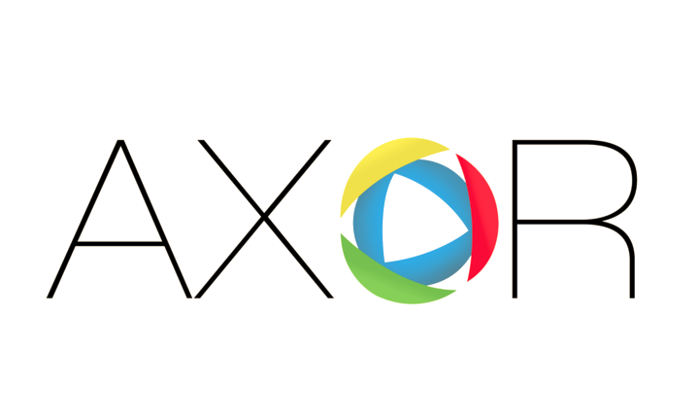
The Axor Smart Contract Protocol
- Please see the license for the contents of this repository.
- See the white paper for technical details.
The Axor Foundation is a non-profit entity whose mission is to develop and promote the Axor Smart Contract Protocol.
The Axor smart contract protocol is an application programming interface (API) which defines how to create smart contracts available in a peer-to-peer decentralized network which will allow people to instantiate axors. An axor is a smart contract which is tied to an unambiguous price definition (in text form, specified when the axor is created). It is only tied to that price in the sense that it stores the textual price definition in the smart contract’s instantiated object. To actually have the axor follow the price, third party oracles must send messages which are updates to the axor with the price. The axor does not represent any ownership in the item priced. Instead it is a smart contract to which peers can deposit tokens (called axo) and then withdraw more or fewer axos depending on changes to the price.
The instantiation of axors is not the responsibility of the Axor Foundation, but is the responsibility of third parties who act as axor creators, who actually tie the axors to a specific price – for example – the price of bananas on Amazon Fresh. The axors created by the Axor Foundation will be for testing / proof of concept, and will likely be tied to some fictional price.
Once created, people can send axo, (points), to the positive or negative side of an axor. As the price defined for the axor increases, the amount of axo available for withdrawal from the positive side of the axor increases while the amount available for withdraw from the negative side of the axor decreases. Likewise, when the price decreases, the amount available for withdraw from the positive side decreases while the amount available for withdraw from the negative side increases.
The axo token is not a marketable currency or asset; instead it acts as a point system tracked by those communicating using the protocol. Axos are not marketable because:
- The Axor Foundation does not sell axos in exchange for fiat or cryptocurrency, but will only gift it as a token of appreciation to those who have donated their time or other services to furthering the mission of the foundation
- We enhanced our open source license to prohibit downloaders of protocol artifacts, such as the whitepaper, code, and binaries, from trading the axo token for cryptocurrency or fiat currency
- If we do become aware of a listing of axo on an exchange we will send a cease and desist e-mail or letter and also notify the appropriate jurisdiction’s legislature about the listing.
Because of the above marketing prohibitions, the axo token functions more like in-game money such as found in Eve Online, World of Warcraft, etc. The companies providing these games have also made efforts to prevent exchanges from listing in-game token so as to prevent in-game use of the token from being regulated as financial transactions. It seems that these game publishers have largely been successful in their efforts to do so.